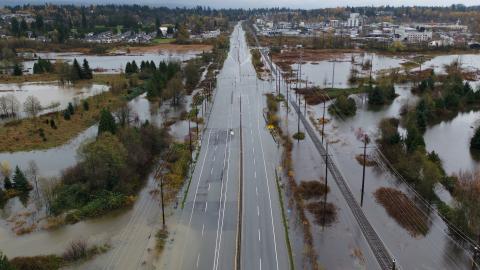The new Emergency and Disaster Management Act includes many new and enhanced responsibilities for local governments, with further details to be outlined in associated regulations. As part of its work to develop a new local authority regulation, the Ministry of Emergency Management and Climate Readiness has released a discussion paper and series of questions for stakeholders to consider. Feedback is due by December 31, 2023.
Amending the current local authority regulation will help create alignment with modernized legislation. The Province’s discussion paper examines a number of new and enhanced local government responsibilities included in the new Act that could be further detailed through regulation, including:
Local Authority Planning
- Risk Assessments: New legislation will require local governments to identify all reasonably foreseeable hazards, and to assess the risk posed by each hazard as well as the potential impacts in the event of an emergency. A regulation could add requirements for how risk assessments must be prepared, including what they might contain.
- Emergency management plans: Under the new Act, enhanced emergency management plans must, among other things, be based on the results of risk assessments and describe measures for each of the four phases of emergency management (mitigation, preparedness, response and recovery). A regulation could add new requirements, beyond what is contained in the Act, for what must be contained in emergency management plans.
- Regional district considerations: When examining rules around risk assessments and emergency management plans for regional districts, it is noted that regional districts are responsible for large areas of the province. A regulation could help reduce the scope of these plans, to focus on key areas.
- Business continuity plans: Legislation will require local governments to have business continuity plans that outline how essential services will be delivered during an emergency. A regulation could add rules, beyond what is contained in the Act, regarding how these plans must be prepared.
- Consultation, collaboration and cooperation: The new Act will require local governments to consult and coordinate with adjacent local governments, as well as neighbouring Indigenous governing bodies. A regulation could potentially add rules related to this process.
- Review of planning materials: Local governments, under the new Act, will be asked to review and revise their key planning documents (risk assessments, emergency management plans and business continuity plans). A regulation could create a review cycle for these documents.
Emergency Management Organizations
- Multi-jurisdictional emergency management organizations (MJEMOs): Under the new Act, local governments may form or join an MJEMO with other local governments, Indigenous governing bodies and the Province. A regulation could create rules around establishment, governance, information sharing and other responsibilities of MJEMOs.
- Other emergency management organizations: If a local government does not join an MJEMO, it will be asked to establish and appoint members to its own emergency management organization. Regulations could create guidelines around establishing these organizations, appointing members and other responsibilities.
As part of work to review these areas, the Province has included a number of questions related to each issue. Local governments wishing to provide feedback, including in response to the Province’s questions, are asked to do so via email by December 31, 2023.
The Province intends to conduct further engagement through virtual sessions in fall 2023. Feedback from these sessions, as well as responses to the discussion paper, will help inform the design and drafting of regulations, which are scheduled to be completed in 2024.

